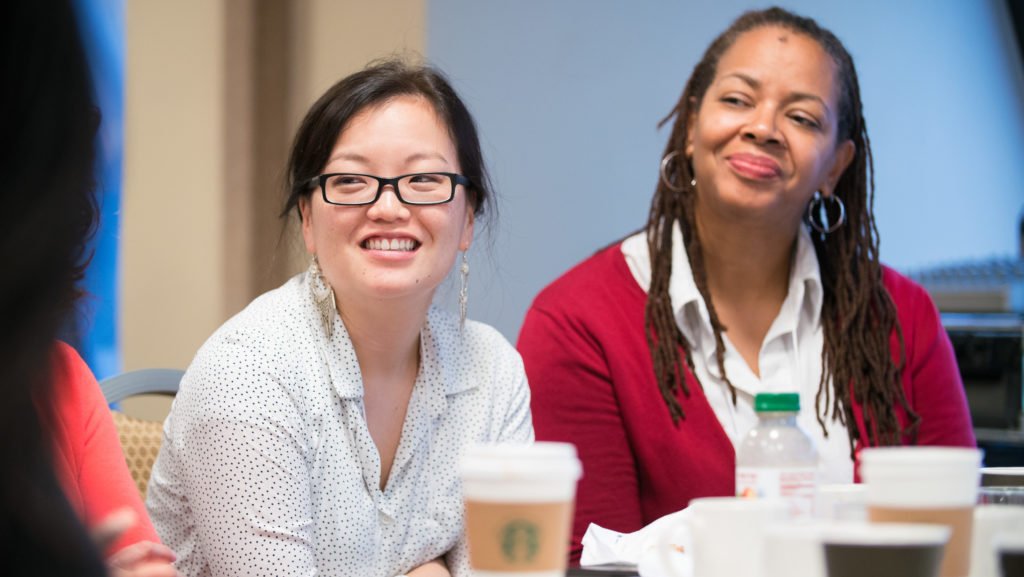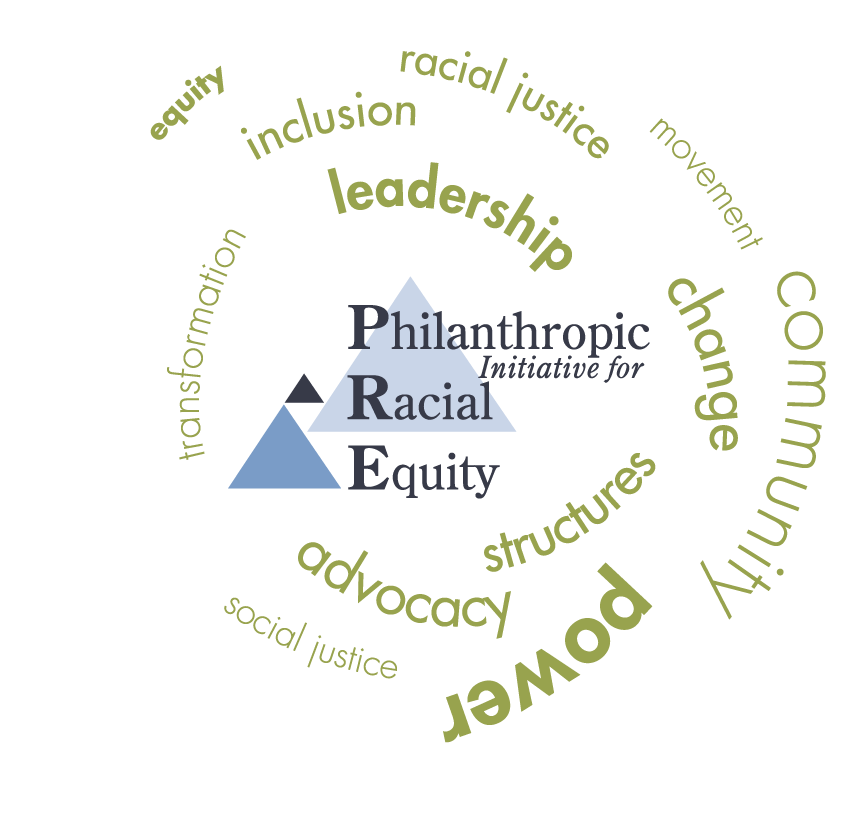Racial Justice Organizations and Resources
The Advancement Project is a democracy and justice action group that works in partnership with local communities, using law, public policy and strategic communications to advance universal opportunity, equity and access for those left behind in America.
The African American Policy Forum was founded in 1996 as a media-monitoring think tank and information clearinghouse, and works to bridge the gap between scholarly research and public discourse related to inequality, discrimination and injustice. The AAPF seeks to build bridges between academic, activist and policy-making sectors in order to advance a more inclusive and robust public discourse on the challenge of achieving equity within and across diverse communities.
The Aspen Institute Roundtable on Community Change is a forum in which people engaged in the field of comprehensive community initiatives can meet to discuss lessons that are being learned across the country. Their recent report, Structural Racism and Community Building, provides a clear and useful explanation of structural racism and its impact on communities. An earlier report, Training Racial Equity and Inclusion , examines the strengths and weaknesses of ten specific anti-racist and race relations programs.
The The Civil Rights Project / Proyecto Derechos Civiles is a multidisciplinary research-and-policy think tank based at UCLA whose mission is to help renew the civil rights movement by bridging the worlds of ideas and action, to be a preeminent source of intellectual capital within that movement, and to deepen the understanding of the issues that must be resolved to achieve racial and ethnic equity as society moves through the great transformation of the 21st century.
Institute on Metropolitan Opportunity began as the University of Minnesota Law School’s Institute on Race & Poverty (IRP), founded by john a. powell in 1993. The IRP focused its efforts on creating greater understanding of racialized poverty and changing policies and practices that affect the well-being of low-income communities of color. It collaborated with many advocacy groups and community organizations; national, state and local government officials; faith-based, philanthropic, and business leaders; and media representatives.
In 2002, with the departure of powell, Myron Orfield, a nationally recognized expert on race, poverty, urban finance, affordable housing and regional reform, was selected to direct the IRP and serve as a professor of law.
In 2012, IRP became the Institute on Metropolitan Opportunity (IMO). IMO has continued to build a strong national reputation in race and poverty, as well as a solid academic and theory-based foundation with a renewed focus on regional social, fiscal and growth dynamics. IMO also is integrating the work of the former Ameregis and Metropolitan Area Research Corporation into its operations.
Kirwan Institute for the Study of Race and Ethnicity is an interdisciplinary engaged research institute at The Ohio State University established in May 2003. Their goal is to connect individuals and communities with opportunities needed for thriving by educating the public, building the capacity of allied social justice organizations, and investing in efforts that support equity and inclusion. They do this through research, engagement, and communication.
People’s Institute Institute for Survival and Beyond was created to develop more analytical, culturally-rooted and effective community organizers. The Undoing Racism Community Trainings has built a national collective of anti-racist, multicultural community organizers who do their work with an understanding of history, culture, and the impact of racism on communities.
Poverty and Race Research Action Council is a civil rights policy policy organization convened by major civil rights and anti-poverty groups in 1989. PRRAC’s primary mission is to help connect social scientists with advocates working on race and poverty issues, and to promote a research-based advocacy strategy on issues of structural racial inequality. PRRAC publishes Poverty & Race, a quarterly print journal.
The Praxis Project’s mission is to support and partner with communities to achieve health justice by providing resources and capacity for policy development, advocacy and leadership. Praxis uses innovative participatory approaches that bridge theory, research and action, and includes several tools that have explicit racial equity perspectives that can be transferable beyond those working on public health.
Racial Equity Tools is designed to support individuals and groups working to achieve racial equity. This site offers tools, research, tips, curricula and ideas for people who want to increase their own understanding and to help those working toward justice at every level – in systems, organizations, communities and the culture at large.
Race Forward: The Center for Racial Justice Innovation united with Center for Social Inclusion in 2017 to become the new Race Forward.
Founded in 1981, Race Forward brings systemic analysis and an innovative approach to complex race issues to help people take effective action toward racial equity. Founded in 2002, CSI catalyzes community, government, and other institutions to dismantle structural racial inequity and create equitable outcomes for all.
The new Race Forward is home to the Government Alliance on Race and Equity (GARE), a national network of government working to achieve racial equity and advance opportunities for all. Race Forward publishes the daily news site Colorlines and presents Facing Race, the country’s largest multiracial conference on racial justice.
Racetalks: a web based project produced by Lani Guinier and Susan Sturm that includes their lessons from experiments with learning and transformation in multiracial workplace, classroom and community settings.
The Western States Center’s mission is to build a progressive movement for social, economic, racial and environmental justice in the west. Its Research and Action for Change and Equity (RACE) program supports research, education and action on race-related issues at the community level, and includes a dismantling racism training program; issue education and strategic convening of allied organizations working towards racial justice; and focused organizational development within communities of color.

